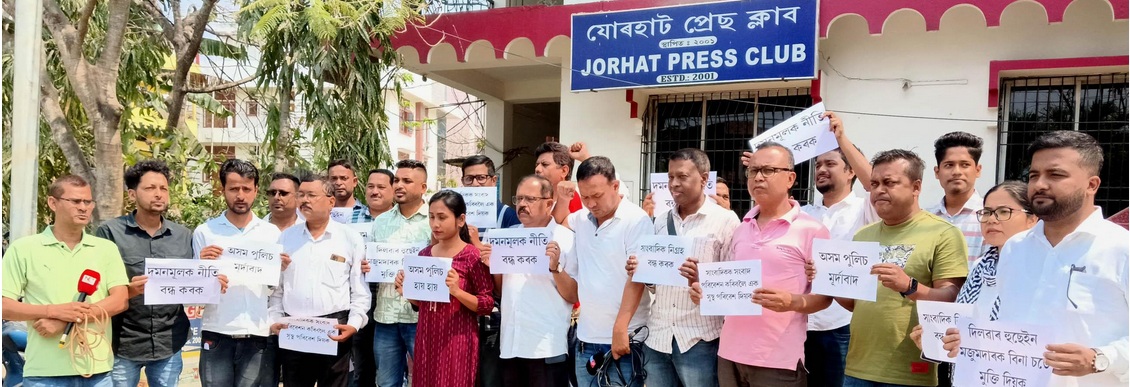Right wing take over of Auroville
 https://www.youtube.com/shorts/VLQlLH35dgk
https://www.youtube.com/shorts/VLQlLH35dgk
The full long version of this story is behind a paywall. https://www.thenewsminute.com/long-form/rss-and-bjps-quiet-takeover-of-auroville
https://timesofindia.indiatimes.com/city/chennai/aurovilles-dream-turns-into-legal-chaos-land-encroachment-and-drug-allegations-surface/articleshow/113437250.cms ,,In September 1988, the Union govt took control, enacting the Auroville Foundation Act to resolve internal disputes between community power centres and representatives of the Sri Aurobindo Society. By January 1991, the Auroville Foundation was formally established. The Mother had laid out Auroville's vision in its charter, comprising four key tenets: "Auroville belongs to nobody in particular; it belongs to humanity as a whole. But to live in Auroville, one must be a willing servitor of the divine consciousness. Auroville will be a place of unending education, constant progress, and youth that never ages."..
The Union govt's recent involvement in Auroville's administr ..The lands are held by the Auroville Foundation under the Auroville Foundation Act of 1988. "These are not govt lands, and the GB and secretary's office alone do not constitute ‘the Foundation' to exchange lands without due process or consultation with the RA and IAC. It is troubling that, instead of addressing the issue, the education ministry has simply asked the Foundation's administration to investigate, essentially tasking those involved in the land mismanagement to investigate themselves. No honest outcome can be expected from such a process," they said.
The committee has urged the Union govt to appoint an impartial and independent inquiry panel to engage with all stakeholders, including committees recognised by the RA, and conduct an investigation. ,, With the working committee alleging that since 2021, the new administration of the Auroville Foundation (AVF) has systematically undermined decades of progress through authoritarian measures and arbitrary actions, one can only wonder what lies ahead for Auroville, the "first and only internationally supported experiment in human unity".
Auroville Under Existential Threat https://auroville.media/crisis/ There has been a systematic takeover by the AVFO of all of Auroville’s major internal working groups and committees that manage the key areas of administration, media, and finances, resulting in the concentration of power in a handful of people who were not appointed by the residents and who do not represent the needs and aspirations of the majority... In June 2024, 98% of 945 residents voted to halt, review, and reverse land deals undertaken by the Secretary, yet these concerns were dismissed and more land exchanges were approved by the Governing Board in October 2024.
Shillong Press Club Condemns Arrest of Journalist Dilawar
S hillong Press Club Condemns Arrest of Journalist Dilawar https://assamtimes.org/node/23377 Mazumdar, the chief reporter of Crosscurrent Digital Media, was first arrested on the night of March 25. Although he was granted bail on March 26, he was rearrested on March 27 based on a complaint filed by the managing director of the Assam Cooperative Apex Bank. . SPC President D L Syiemlieh stated that the rearrest of Mazumdar shortly after being granted bail is deeply concerning and represents a shocking misuse of legal processes. He emphasized that this action constitutes a direct assault on the freedom of the press and the fundamental right to free expression
hillong Press Club Condemns Arrest of Journalist Dilawar https://assamtimes.org/node/23377 Mazumdar, the chief reporter of Crosscurrent Digital Media, was first arrested on the night of March 25. Although he was granted bail on March 26, he was rearrested on March 27 based on a complaint filed by the managing director of the Assam Cooperative Apex Bank. . SPC President D L Syiemlieh stated that the rearrest of Mazumdar shortly after being granted bail is deeply concerning and represents a shocking misuse of legal processes. He emphasized that this action constitutes a direct assault on the freedom of the press and the fundamental right to free expression
PCI Slams Assam CM for Questioning Journalist Authenticity in Re-Arrest Case https://assamtimes.org/node/23378 By AT News | Friday, Mar 28, 2025
पत्रकार जेल में है, कॉमेडियन बेल पर है, ये कैसा भारत है, प्रधानमंत्री मोदी कहाँ हैं? https://www.youtube.com/watch?v=3Blv9jiS3OE असम के पत्रकार सड़क पर उतर गए हैं। साथी पत्रकार की गिरफ्तारी के विरोध में। मुख्यमंत्री कहते हैं कि दिलवर हुसैन मज़ूमदार पत्रकार नहीं है। लेकिन कोर्ट के एक मामले में ज़मानत देते हुए कहा कि गिरफ्तारी के लिए कानून का दुरुपयोग हुआ है। सरकार को कहां पीछे हटना चाहिए था तो चोरी डकैती के आरोप में जेल में डाल दिया। आप ही बताइये। एक बैंक के बाहर प्रदर्शन हो रहा है। उसे कवर करने पत्रकार गया है। पुलिस केस करती है कि किसी का जातिगत अपमान किया है। इस केस में बेल मिलती है तो चोरी के आरोप में जेल में डाल जाता है। पहले चोरी का केस दर्ज होगा या अपमान का? क्या ये पुलिस की दादागीरी नहीं है?
I am Sorry, Ankita - from Colin Gonsalves
https://en.wikipedia.org/wiki/Murder_of_Ankita_Bhandari
( Open Letter of Supreme Court Advocate Colin Gonsalves On Supreme Court's Refusal to Entertain Petition for CBI Enquiry into murder of Ankita, a young girl who was killed while employed in a hotel run by a BJP leader's close relative in Dehradun.)
Open Letter of Supreme Court Advocate Colin Gonsalves On Supreme Court's Refusal to Entertain Petition for CBI Enquiry into murder of Ankita, a young girl who was killed while employed in a hotel run by a BJP leader's close relative in Dehradun.)
I’m sorry, Ankita that your case in the Supreme Court seeking a CBI investigation into your murder was disposed of and we have not yet managed to catch the main culprit. I’m sorry Ashutosh, fearless journalist and Petitioner before the Court that you have had to suffer victimisation for investigating this case and had FIRs filed against you and also suffered the victimisation of your wife by way of her transfer. I’m sorry Soni Devi, for the death of your darling daughter by a VIP who asked for “special services” from Ankita, a young girl working in the hotel. Her refusal led to her murder.
Page 8 of 53
